Discoveries for life
The faces of health research 2024
| Title |
|---|
Strokes require treatment—quicklyA promising medication could buy time and improve outcomes for Canadians experiencing stroke  Photo courtesy of: Quentin Collier, Department of Clinical Neurosciences, University of Calgary
Acute ischemic stroke is a serious, time-sensitive medical condition caused by the sudden blockage of a brain artery. Damage from loss of blood flow happens rapidly and is life-ending or life-altering for thousands of Canadians each year. Restoring blood flow as quickly as possible is critical. For Dr. Bijoy Menon, seeing people walk out of the hospital unaffected by the stroke they had is the most rewarding aspect of his work. Dr. Menon at the University of Calgary is leading a pan-Canadian study investigating the use of a medication designed to protect brain cells when they are not getting enough nourishing blood, slowing brain damage and providing more time for treatment. The study, called ACT-42, with support from a CIHR Clinical Trials Project grant, builds on research that has already changed the standard of care for acute stroke. |
Developing a Controlled Human Infection Model to Study Influenza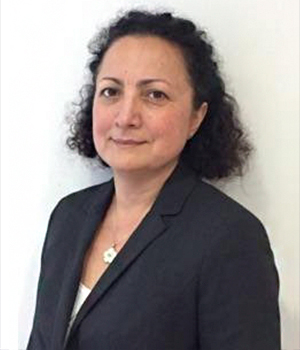 Dr. Zoulfia Allakhverdi 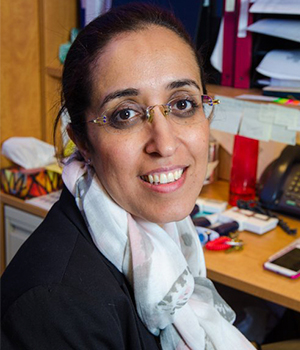 Dr. May S. ElSherif
Researchers at Dalhousie and McGill universities are teaming up to develop a new approach to accelerate clinical trials and build resiliency against influenza and other respiratory infections. We know that discoveries take time. One of the things slowing down the discovery of new vaccines and treatments for influenza is that, in clinical trials, researchers need to wait for participants to naturally get sick before they can assess how they fared compared to the other participants. But what if researchers could deliberately infect (challenge) participants with the virus, in a safe and controlled way, to advance the clinical trial? Thanks to funding support from the CIHR Clinical Trials Fund, this multidisciplinary team of researchers from across universities is doing just that and developing a Controlled Human Infection Model (CHIM). They will take healthy volunteers aged 18 to 40 years and determine the optimal and safe dose of influenza virus that can be given to them through the nose to produce a mild, symptomatic infection. Having this standardized process in place will enable greater understanding of the disease process, immune response, and why certain individuals are better protected. It will also speed up clinical trials and enable researchers to more precisely test the effects of the vaccine or intervention under study, because everything will be carried out under controlled conditions in a clinical setting. Once the CHIM process is established, it can be reproduced for other studies involving other viruses or bacteria, leading to more effective vaccines and better preparedness for future pandemics. Ultimately, the goal is sustainable infrastructure and expertise focused on protecting Canadians from the risk of public health emergencies associated with infectious diseases. Further reading |
Genetic treatment offers hope for devastating neurological conditions in childrenTay-Sachs and Sandhoff disease are incurable and fatal—but a new gene therapy shows promise 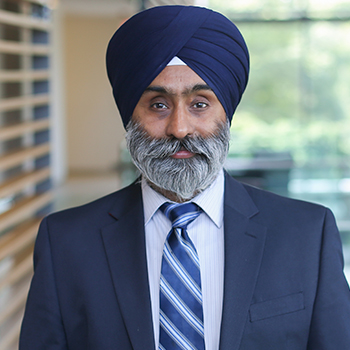
Genetic research is providing novel therapies for previously incurable conditions. Tay-Sachs disease and Sandhoff disease are two genetic disorders, currently untreatable, that might someday be treated with a new gene therapy called hB-A. That's the hope of professor and geneticist Dr. Jagdeep S. Walia, a Clinical Trials Fund-supported researcher. Tay-Sachs disease and Sandhoff disease are similar neurological conditions which result in the progressive destruction of neurons, the spinal cord, and the central nervous system, resulting in cognitive and motor skills impairment, seizures, respiratory issues, and paralysis. Infants born with either condition almost always die by the age of four or five years old. hB-A is among the first therapies that has the potential to correct these genetic conditions by fixing the faulty gene. Dr. Walia has described the improvements in lifespan and quality of life as "astonishing" in animal models. The compelling success of hB-A in animal models is leading to a clinical trial involving eight to ten human patients, with funding from CIHR, to treat symptoms of these two fatal conditions. Early results of hB-A hold a lot of promise. With the new clinical trial, there might finally be a viable option for long-term survival of infants with Tay-Sachs or Sandhoff disease, saving families from the heartbreak of losing a child. |
Can Taurine Supplements Treat Long COVID?A clinical trial will provide much-needed evidence to help patients 
Lawrence Richer 
Gavin Oudit 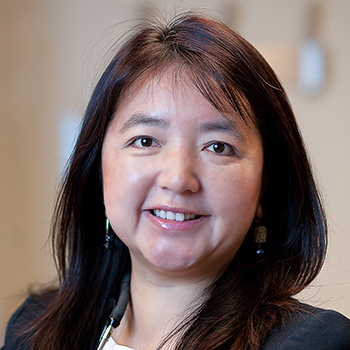
Angela Cheung
Post-COVID Condition (PCC), also referred to as Long COVID, is a debilitating condition that affects approximately 10% of people who have contracted COVID-19. There is currently no cure in Canada for this illness that is accompanied by fatigue, brain fog, dizziness, gastrointestinal issues, and a myriad of other symptoms. Could something as simple as a taurine supplement help? Previous research has shown that taurine, an amino acid, is beneficial for brain, gut, and heart health. In 2023, a breakthrough from an international group of researchers showed that taurine supplementation increased mouse lifespan by 10–12%. Meanwhile, in Alberta, Dr. Gavin Oudit’s research on biomarkers picked up a signal that taurine deficiency is linked to worsening symptoms and outcomes in patients with Long COVID. Putting that information together, Dr. Oudit and Canadian colleagues Dr. Lawrence Richer and Dr. Angela Cheung are now testing taurine supplementation in a clinical trial to assess how it affects Long COVID. With support from the CIHR Clinical Trials Project grant, the research team will recruit 300 participants suffering from Long COVID and measure changes to their health, including changes to their microbiome and blood plasma makeup, after taking taurine supplements versus placebo. The goal is to see if taurine supplementation can help with recovery from Long COVID, and to determine which patients would be the best candidates for this treatment. What’s also exciting about this clinical trial is that the results may be applicable to other conditions with similar symptoms, such as myalgic encephalomyelitis, formerly called chronic fatigue syndrome. Drs. Richer, Oudit, and Cheung are collaborating from various locations across Canada and recruiting trial participants from coast to coast. Their research is going to make use of an existing clinical trial platform called RECLAIM (Recovering from COVID-19 Lingering Symptoms Adaptive Integrative Medicine Trial). In addition to being one of the most rewarding aspects of their work, their collaboration brings together a wide range of expertise and resources to benefit the clinical trial and hopefully lead to an effective treatment for patients. Further reading
|
Addressing the COVID-19 vaccine gap: improving protective immune response in the vulnerable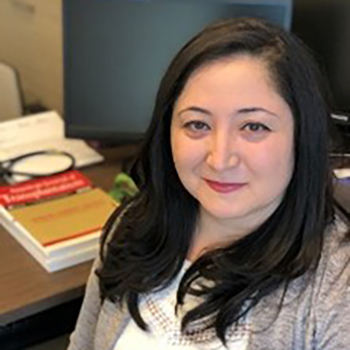
The COVID-19 pandemic was particularly threatening to those with weakened immune systems as they were more vulnerable to experiencing disruptions to their lifestyle, more severe complications following COVID-19 infections, and death. While the COVID-19 vaccines offer some protection, for those with weakened immune systems, there is a decreased ability to develop a protective immune response. Despite this, and because of the complexity of their health concerns, these individuals are not well represented in studies that determine if preventative measures - like vaccines - are safe and helpful in overcoming viral airway infections. Dr. Ruth Sapir-Pichhadze, Associate Professor of Medicine Science at the Research Institute of McGill University Health Centre, is addressing this gap through her clinical trial, “Best Shot for What You’ve Got”. This trial assesses two different strategies for improved protection against respiratory viruses: first, they are evaluating the effectiveness of COVID-19 and seasonal influenza vaccines together, and second, whether more frequent COVID-19 vaccine doses (every 3-months or 6-months) offer improved protection. The aim is for these approaches to provide a stronger protective immune response to vaccines against viral infections. Not only could this prove to be lifesaving and improve the quality of life for these individuals, but it would also serve to decrease the burden on caretakers and the health care system. |
A new tool could make ruling-out bacterial infections easier—and reduce misuse of antibioticsDr. Semret’s clinical trial will test the efficacy of a new diagnostic tool to reduce inappropriate antibiotic use in the intensive care unit.  Dr. Makeda Semret Antimicrobial resistance is a major public health threat, so much so that Canada has a national action plan to contain antimicrobial resistance, a core tenet of which is reducing the misuse of antibiotics. Most misuse of antibiotics is either excessive use or inappropriate use, using antibiotics for illnesses that will not be fixed with antibiotics. But excessive or inappropriate use of antibiotics are difficult to address, particularly for critical illnesses, where fear of under-treating plays a significant role in decision-making. In short, it’s easier to assume a patient may have a bacterial infection than to be certain the illness is due to a virus or a non-infectious cause. A new commercial diagnostic tool, MeMed BV, combined with a decision-making grid, is the focus of a Clinical Trials Fund–supported study led by Dr. Makeda Semret at the McGill University Health Centre in Montreal. The goal of this trial is to inform researchers, practitioners, and health care administrators whether and how the new MeMed BV tool should be incorporated into medical practice, ensuring a smart and beneficial integration of the diagnostic tool. MeMed BV, which is FDA-approved in the United States, uses a small blood sample to test for levels of three particular biomarkers; the resulting score may be useful to determine likelihood of a bacterial infection versus a non-bacterial infection (or no infection). If successful, the approach should cut down on diagnostic uncertainty in settings where antibiotic use, and antimicrobial resistance, are the highest. Dr. Semret, an infectious diseases specialist who treats patients with antimicrobials on a regular basis, leads a Program of Antimicrobial Stewardship at the McGill University Health Centre. MeMed BV and other such diagnostic tools are promising, but only pragmatic randomized clinical trials will tell if this new test and the proposed approach have their place in Canadian hospitals |
New hope for premature newborns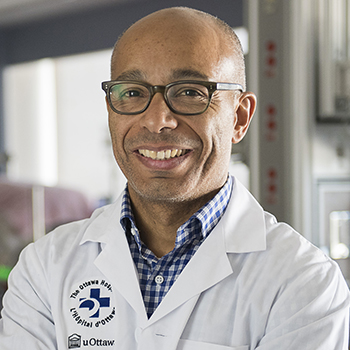
Roughly 8 out of 100 babies are born premature in Canada each year. That means 26,000 babies in Canada are born with a much higher risk of health problems, and even death, than a baby born at term. Worldwide, the number of preterm births is over 13 million each year. But a new clinical trial in Ottawa might provide relief for babies and their families. With support from the CIHR Clinical Trials Fund, research led by Dr. Bernard Thébaud at The Ottawa Hospital and Children’s Hospital of Eastern Ontario is testing the possibility of using special cells called mesenchymal stromal cells taken from the umbilical cord to repair the lungs of preterm babies. Preterm babies often require breathing equipment, but the pressure from the oxygen they receive can cause damage to their delicate lung tissue and lead to bronchopulmonary dysplasia, a long-term condition in which the lungs do not function properly. Bronchopulmonary dysplasia not only affects the lungs, but it can affect eyesight, brain development, and potentially cause gut problems and severe infection. Dr. Thébaud believes that a potential cure lies in the mesenchymal stromal cells. These cells decrease the inflammation in the lungs and prevent further damage. In addition, the cells release growth factors that kickstart the lung repair process. The repair capacity of these cells may extend to other organs including the brain and the gut, improving the overall outcome of preterm babies. For Dr. Thébaud, this research—and his entire career—all goes back to parents and their newborns. “The most rewarding part of my job is watching parents leave the NICU to bring their babies home and seeing these babies thrive,” he says. Further reading |
A safe, cheap, readily available drug may help treat serious lung infections and enhance pandemic preparedness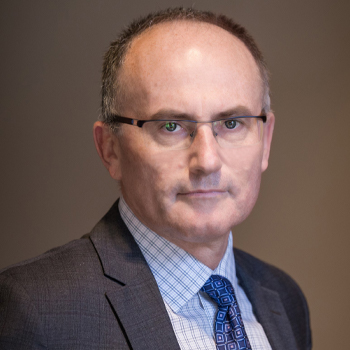
People who develop severe lung infections can develop respiratory failure and require care in a hospital intensive care unit where they may need mechanical ventilation to help them get the oxygen they need to live. Despite the availability of antimicrobials, the health outcomes for these seriously ill patients remain poor and there is a need for supportive therapies to help them recover. In lung infections, one of the causes of breathing problems is inflammation and there is no accepted treatment for this. During the COVID-19 pandemic, it became clear that anti-inflammatory drugs were of benefit but were in short supply. At the time, Dr. John Muscedere, a critical care specialist and professor at Queen’s University, and his colleagues identified furosemide as a promising treatment. Furosemide is a safe, inexpensive drug that has anti-inflammatory properties and can be administered directly to the lungs by inhalation. It is usually used as a diuretic but when inhaled it does not have diuretic properties. This drug, which has been used for decades, is readily available, cheap, and easy to manufacture. With the support of a CIHR Clinical Trials Project grant, Dr. Muscedere will study the efficacy of inhaled furosemide in patients with respiratory failure caused by a lung infection. His team will recruit 1500 patients and assess the effect of this drug on lung function, mortality, and the length of time patients need respiratory support, supplemental oxygen, and stay in the hospital and intensive care. If the results are positive, the use of furosemide as a novel treatment for respiratory failure could be implemented widely in Canada and health care systems around the world given its low cost and ease of use. This therapeutic advance would not only benefit patients, it could also help enhance our preparedness for the next respiratory virus with pandemic potential. Learn more about CIHR’s Clinical Trials Fund. Further reading |
Toward Eradicating Hepatitis C: Canadian-borne HCV vaccine enters clinical trials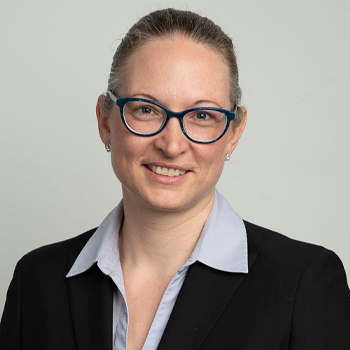
Hepatitis C virus (HCV) affects about 58 million people worldwide, including over 250,000 Canadians. Although effective treatments exist for this chronic infection, a vaccine is not yet available and people at risk of being infected with the virus remain unprotected. Dr. Vanessa Meier-Stephenson is an infectious diseases physician and researcher at the University of Alberta. Her lab is working to answer clinically important questions and develop novel antivirals. With the support of a CIHR Clinical Trials Project grant, Dr. Meier-Stephenson will carry out a phase one clinical trial on an HCV vaccine candidate, which was designed at the Li Ka Shing Applied Virology Institute under the leadership of Nobel Laureate Dr. Michael Houghton, co-discoverer of the hepatitis C virus. Dr. Meier-Stephenson will be the clinical lead for the trial at the University of Alberta while two other sites will be led by Dr. Jordan Feld at the University of Toronto and Dr. Curtis Cooper at the University of Ottawa. This initial testing will assess safety and efficacy of the vaccine in healthy volunteers and determine the optimal dose. The results will determine if the vaccine is safe to proceed to the second phase of clinical testing. The significance of the work being done by Dr. Meier-Stephenson and her colleagues cannot be overstated. If successful, this vaccine would not only protect against infection but also propel us closer to the ultimate goal: eradicating HCV! Learn more about CIHR’s Clinical Trials Fund. Further reading |
“You Know You’re Not the Only One”The iPeer2Peer Mentorship Program within Pediatric Transplantation  Dr. Samantha J. Anthony Adolescent transplant recipients experience unique psychosocial challenges compared to healthy peers, including increased risk of psychological distress, social isolation, and impaired social and cognitive functioning. This is concerning as adolescent patients are undergoing critical developments in their identity as they prepare to transition to adult care. The iPeer2Peer program is an online peer support mentorship program that provides one-to-one support by young adult mentors to adolescent mentees with the same chronic illness. Based on patient-identified needs, Dr. Anthony and collaborators piloted the iPeer2Peer program at two Canadian pediatric transplant centres, The Hospital for Sick Children and Stollery Children’s Hospital, with 20 mentees and 13 mentors. Participants connected virtually through video calls and text messaging for 15 weeks to promote social connection, self-management, and transition skills. This innovative research leverages peer support and digital health technologies as promising solutions to current gaps in clinical care to help meet the unique developmental, psychosocial, and self-management needs of adolescent transplant patients. Next steps include adapting the iPeer2Peer program for other chronic illness population groups, including for parents and caregivers. A video about this project won a special commendation in the 2023 IHDCYH Talks video competition. Visit the IHDCYH Talks YouTube channel to watch all the submissions. Learn more about the annual IHDCYH Talks video competition. Further reading X (Twitter) handle |
O-I Got Pains: We Thought You Should Know!Understanding pain among children with brittle bones 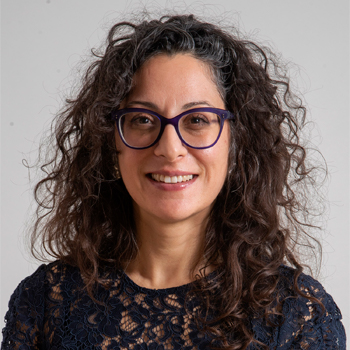 Dr. Argerie Tsimicalis Osteogenesis Imperfecta (OI), also known as brittle bone disease, is a rare, heritable condition that makes bones very fragile, resulting in many breaks and injuries. Children with OI face unique challenges in pain assessment and management that from infancy through to adulthood. According to Dr. Tsimicalis’s research at the Shriners Hospitals for Children®-Canada, and ongoing collaborative work with the Osteogenesis Imperfecta Federation of Europe (OIFE) and Osteogenesis Imperfecta Foundation (OIF) ‘Pain & OI Project,’ pain is present. However, there is little information about pain, how to best manage the pain, and what strategies may be implemented for best quality of life. Dr. Argerie Tsimicalis and her research team at the Shriners Hospitals for Children®-Canada are leading efforts to understand the experiences of children living with rare conditions and to create and evaluate new resources. They seek to mobilize individuals and systems for better pain assessment, management and awareness. These resources will help children and their families understand health information, communicate their needs, participate in decisions, manage their conditions, and improve the quality of care. A video about this project won third place in the 2023 IHDCYH Talks video competition. Visit the IHDCYH Talks YouTube channel to watch all the submissions. Learn more about the annual IHDCYH Talks video competition. Further reading
X (Twitter) handle |
Nothing For Youth, Without YouthPromoting meaningful youth engagement in health research  Dr. Alene Toulany Youth with chronic health conditions face unique challenges as they navigate the healthcare system. At the same time, they are undergoing many physical and psychosocial changes during a critical developmental stage. These challenges include developing a sense of identity and independence, while learning to manage and understand the impact of their condition on their lives. Engaging youth in health research is essential to developing interventions and policies that address their unique needs and support positive health outcomes. We have partnered with youth to better understand how they can play a more active role in research, the benefits and challenges they encounter, and their specific needs to facilitate meaningful engagement. Our video showcases how to partner with youth, advocating for co-design principles, integrating more adaptable strategies, and promoting youth-driven involvement. Encouraging youth to share their experiences through research boosts their confidence, while also empowering them. Dr. Toulany is an advocate for youth in clinical and research settings. Using integrated knowledge translation approaches, she collaborates closely with youth, families, and healthcare professionals to address health system challenges, including the transition to adult care, sexual and reproductive health needs of adolescents, and optimizing the quality of care for those with concurrent chronic physical and mental conditions. This video won first place in the 2023 IHDCYH Talks video competition. Visit the IHDCYH Talks YouTube channel to watch all the submissions. Learn more about the annual IHDCYH Talks video competition. Further reading X (Twitter) handle |
Are health systems ready to meet the challenge of climate change?Adapting international innovations for climate change mitigation, policy, and measurements in the Canadian and OECD health system context 
Climate change is one of the most pressing issues of our time, and it poses significant threats to global population health. From extreme weather events to altered disease distribution, the impact of climate change is felt in numerous ways. Surprisingly, the healthcare sector is contributing to the problem by emitting greenhouse gases at a level comparable to the aviation industry. In Canada, healthcare is estimated to contribute 4.6% of greenhouse gases. Dr. Sophie Wang is a health policy researcher at the Organization for Economic Cooperation and Development (OECD) where she aims to better understand the range of policies, strategies, and actions that countries can implement to reduce carbon emissions along healthcare delivery pathways. Her current focus is primary care, which is the first place people go when they need medical assistance. She is assessing the potential carbon emission savings achieved when conditions such as asthma, diabetes, and hypertension are treated in primary care settings rather than in the hospital, where carbon emission is much higher. Dr. Wang is also reviewing various carbon emission reduction policies beyond the healthcare sector including household energy, transportation, and food. For example, her work suggests the benefits of adopting policies that invest in urban bike share initiatives and planning for mixed use neighbourhoods where amenities are within walking distance. These policies not only reduce carbon emissions but can also decrease the risk of becoming overweight and obese, thus improving health outcomes. By better understanding the interconnected natures of these benefits, Dr. Wang’s work seeks to promote healthier lifestyles, prevent health issues and diseases, and ultimately create a more sustainable healthcare system. Working at the OECD, she is well-situated to turn evidence into policies for real change. Further reading |
COVID-19-Self-Testing: Analyzing its Effectiveness Across the GlobeExamining diagnostic accuracy and future implications 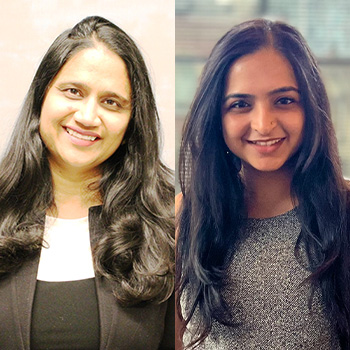
COVID-19 self-testing using rapid antigen tests has been a game-changer in fighting the pandemic by making it easier to detect the infection quickly, leading to lower transmission in crowded healthcare settings, workplaces, schools, and other public places. By the end of 2021, these tests were available in pharmacies and grocery stores across Canada, making it possible to curb transmission and, in the case of a negative result, facilitate the continuation of social activities. Dr. Pant Pai, an associate professor of the Department of Medicine at McGill University, and her team conducted an analysis of 70 studies across 25 countries and 780,000 individuals to determine the accuracy of COVID-19 self-testing. Their findings show that COVID-19 self-testing has high specificity, meaning the ability to correctly detect when a person doesn't have the virus (true negative) with an accuracy of above 98%. False negatives were primarily observed when the individual was outside the contagion window. Sensitivity, the ability to correctly detect when the person has the virus (true positive), was also high, especially in symptomatic populations, supervised settings, and when digital support systems are available. Dr. Pant Pai's study revealed widespread acceptance, availability, and convenience of self-testing globally. Dr. Pant Pai is also developing digital innovations to support remote testing technologies for viruses, building on her early work with tests for HIV and other sexually transmitted and blood borne infections (STBBI). She will soon publish the results from a clinical trial that took place in South Africa, involving COVID-19 self-testing coupled with a smartphone/tablet app. This app offers guidance on self-test interpretation and assesses a participant's risk of severe COVID-19. Dr. Pant Pai hopes her findings will help those with COVID-19 exposure get test results faster and start necessary action. COVID-19 self-testing and associated strategies like this will likely continue to be critical tools in pandemic management, offering a convenient and effective method to identify cases and reduce the spread of viruses in public and healthcare settings, with implications extending beyond COVID-19. Apoorva Anand is first author and trainee of Dr. Pant Pai for the study reviewing the COVID-19 self-testing. She was also the project manager for Dr. Pant Pai's COVID-19 Smart Care Clinical Trial. Further reading
Media |
Implementing E-Mental Health Equity and Care in CanadaAre we ready to embrace digital approaches for mental health? 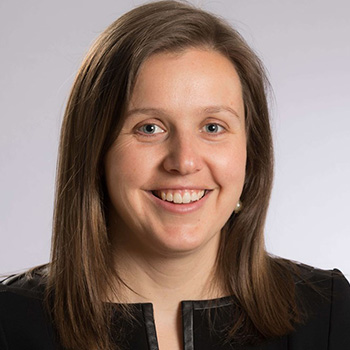
Dr. Gillian Strudwick, a nursing leader and senior scientist, advocates for digital interventions in mental health care across Canada. During Dr. Strudwick's early days in clinical practice, almost all essential medical information was recorded on paper. Nowadays, clinicians have shifted to digital trackers, with the potential of using data mining and technology to improve research and patient care. But while digital technologies are widely used in non-mental health contexts, there hasn't been the same level of uptake for mental health. During the COVID-19 pandemic, Dr. Strudwick witnessed an increase in mental health challenges due to isolation. While digital health interventions were available, there was no reliable guidance from experts or organizations as to which services might be helpful, suitable, or safe for Canadians. Therefore, Dr. Strudwick and her team decided to create a digital library of mental health interventions, which resulted in a helpful catalogue of resources for people to access. In addition, her team developed the SaskWell text messaging platform to help people in Saskatchewan with their mental health during the pandemic. To enroll in the program, participants would fill out a brief survey about their age, location, and other preferences (e.g., Indigenous-focused resources). Based on their replies, participants were paired with a digital mental health tool. Every week, they received tips to boost their wellness and a chance to provide feedback. Dr. Strudwick points out that the demand for e-mental health tools is growing rapidly, but this shift could inadvertently create a larger gap between those who have access to these technologies and those who do not. The lack of infrastructure in some parts of Canada reduces accessibility for communities with limited internet. The long-term objective is to bridge the gap and ensure that everyone can get access to mental health services. Further reading |
The Terminal Diner: A place everyone visits onceLeveraging participatory design and the arts to disseminate health services research to the general public, collect insights, and inform future research 
Because death and end of life are often difficult and negative topics of conversation for many Canadians, many people opt to avoid the topic altogether, often until they are immediately faced with it. Research has shown that while people may have many contacts with the health care system as they become sicker, they may not receive palliative care or other adequate supports. Among the care they do receive, they often see an inconsistent mix of providers, which can negatively impact their quality of life. Dr. Sarina Isenberg, a researcher at the Bruyère Research Institute and University of Ottawa, recognizes that research findings and questions do not always feel accessible to the public, and some people may not think the research is "relevant" to them, but the reality is everybody will die. That's why Dr. Isenberg and her team created The Terminal Diner, an interactive installation that combines research and design to explore the topic of end-of-life experiences. The goal of this unique exhibit is to invite people to explore this topic in an approachable way and to build public awareness around a universal experience. Having been previously exhibited at Evergreen Brick Works in Toronto, the exhibit is currently being displayed at the David Braley Health Sciences Centre in Hamilton until April 1, 2024. Future venues include the Ottawa School of Art, Bruyère's Saint Vincent Hospital in Ottawa, and the McGill International Congress on Palliative Care in Montreal. This CIHR-funded work is done in collaboration with Dr. Michelle Howard of McMaster's Department of Family Medicine, designers Karen Oikonen and Kate Wilkes, research staff Aria Wills and Shuaib Hafid, and caregiver partner Nyanna Flynn. Further reading |
Cancer, Firefighting and Science: Unique PartnershipsHow cross-discipline expertise can help advance our understanding and treatment of cancer 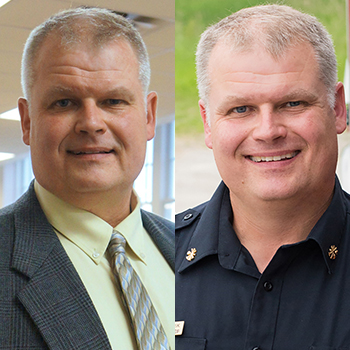
As a translational cancer researcher, Dr. Jim Petrik at the University of Guelph is investigating how manipulating the tumour microenvironment can enhance the uptake and efficacy of treatments such as chemotherapy, virotherapy, and immunotherapy. Tumours often have an abnormal structure of blood vessels that disrupts blood flow and leads to a low oxygen state known as hypoxia. This state can reduce the effectiveness of cancer treatments and lead to poorer outcomes for patients. Dr. Petrik's lab has developed an approach that normalizes the tumour vasculature to enhance vascular perfusion and reduce tumour hypoxia. They have shown that this remodeling of the microenvironment increases the uptake of cancer therapies by approximately 500% and induces regression of advanced stage ovarian and pancreatic cancers in preclinical models. Dr. Petrik and his team are very excited to be working towards clinical trials with this novel therapeutic approach. Dr. Petrik combines his career in cancer research with a leadership position in the firefighting services as the Fire Chief for the Guelph Eramosa Fire Department. This role gives Dr. Petrik the opportunity to bring his cancer research expertise to addressing the alarming increase in the incidence of many different cancers among firefighters. As Fire Chief, he is collaborating on a CIHR-funded study on barriers to the use of personal protective gear by firefighters. As a member of the Canadian Association of Fire Chiefs Cancer Committee, Dr. Petrik and his fire service colleagues are taking a science-based approach to keeping firefighters safe. Together they are working to understand the exposure vulnerabilities that firefighters face and responding to the need for a robust medical monitoring program for firefighters. In June 2023, Canada's Parliament passed Bill C-224, which calls on the Minister of Health to develop a national framework to raise awareness of cancers linked to firefighting with the goal of improving access for firefighters to cancer prevention and treatment. It also designated January as Firefighter Cancer Awareness Month in Canada. Further reading |
Flames and risks: firefighters at risk of cancer and other diseasesResearchers seek to enhance protection for firefighters by assessing the risk of disease and exposure to hazards 
Firefighters are at increased risk of cancer and are exposed to a mix of carcinogenic (cancer causing) hazards, including fire smoke, flame retardants, diesel engine exhaust, asbestos, and shift work. The International Agency for Research on Cancer (IARC) recently re-classified firefighting as carcinogenic to humans on the basis of sufficient evidence for cancer in humans, with the strongest evidence for bladder cancer and mesothelioma, and probable associations with prostate, colon, and testicular cancers, as well as skin melanomas and non-Hodgkin's lymphomas. Drs. Paul Demers, Tracy Kirkham, and Jeavana Sritharan at Ontario Health's Occupational Cancer Research Centre and the University of Toronto's Dalla Lana School of Public Health are seeking to enhance protection for firefighters by assessing the risk of disease and exposure to hazards. They developed a surveillance system that has been used for large epidemiologic studies that have identified higher risks of certain cancers among firefighters consistent with the IARC evaluation. By gaining a better understanding of the risk of cancer and related exposures, they are helping determine appropriate preventative measures for firefighters and ultimately reduce disease risk. These researchers have an ongoing project to examine respiratory fit testing for firefighters during simulated life support tasks, which may contribute to enhancing respiratory protection requirements, respiratory fit testing protocols, and other health and safety measures. They are also developing methods to measure exposure to polyfluorinated substances (PFAS) and other flame retardants in firefighters and completed a study examining the effectiveness of measures to control diesel engine exhaust in firehalls. In June 2023, Canada's Parliament passed Bill C-224, which calls on the Minister of Health to develop a national framework to raise awareness of cancers linked to firefighting with the goal of improving access for firefighters to cancer prevention and treatment. It also designated January as Firefighter Cancer Awareness Month in Canada. Further reading
|
- Date modified:
